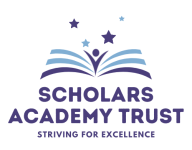Speech and Language Provision
“The school is inclusive and aspirational. The curriculum is ambitious. Staff adapt the curriculum well to meet the needs of pupils with special educational needs and/or disabilities (SEND). This includes a significant number of pupils with EHC plans who attend the SEN unit, known as the Speech and Language Provision. These pupils receive excellent care and support to access the same curriculum as their peers whenever they can.”
Ofsted 2024
The Glenfield Speech and Language Provision is a designated specialist provision attached to the mainstream primary school, which takes children from across Leicestershire who have speech, language and communication needs.
The Provision has places for up to 24 children from Early Years Foundation Stage up to Year Six, offering high staff to pupil ratios and focused, individualised learning. The Provision has two classes. The first class is made up of Foundation stage to some Year 4 pupils, the second class is Year 5 to Year 6. There is a specialist teacher and at least one specialist teaching assistant for each class of pupils. There are also two NHS speech therapists who work in the Provision once per week.
The Head of the Speech and Language Provision is Mr Nathan Squires. To get in contact, either phone the school office or email at splprovision@glenfield.leics.sch.uk
Criteria for entry
All referrals to the Provision are made by the Local Authority, in consultation with the child’s parents and the Provision.
Children allocated a place at the Provision should have speech, language or communication (communication and interaction) identified as their primary need within their Education and Health Care Plan.
SLCN needs
All the pupils in the speech and language classes have specific speech or language needs which are severe enough to prevent them from learning in a mainstream class.
Pupils may have difficulty understanding language, expressing ideas and making themselves understood or find it difficult to recall words they know and sequence them in sentences. Other children may have significant difficulty with hearing and/or producing speech sounds. Some pupils may experience difficulties in several of these areas.
What the Provision offers
- A calm, supportive and safe environment
- Specialist teaching and support
- Intensive speech therapy
- A language focused, highly differentiated and individualised curriculum
- Lessons with appropriate pace and structured, small-step learning
- Specialised sessions to support areas such as social skills, motor control and play skills where appropriate.
- Supported integration within mainstream classes
Speech and language therapy
Our two Speech and Language Therapists are in school for a combined on one da each week. Pupils have a weekly session with a therapist, which is attended by a teaching assistant, who will then follow up the child’s speech or language programme during the week. The specialist staff and Speech and Language Therapists regularly liaise to create specific learning experiences tailored to individual children's needs.
How the Provision functions
Staff in the Provision are experienced in the use of a range of specialised resources and approaches to support learning. ‘Makaton’ signing is used to support the understanding of speech, particularly with the younger pupils. ‘Cued Articulation’, a signing system used by the speech therapists, is also used in the classroom to support phonological awareness, accurate sound production and as a valuable cue for any child experiencing word finding difficulties. In addition, ‘Colourful Semantics’ is used to support children with their understanding of grammatical structure.
The Curriculum
Children in the Provision follow the same revised National Curriculum as those in mainstream classes. This is then highly adapted to meet their individual needs, with a language focus and a visual and practical approach.
Inclusion
Children in the Provision all have dinner, playtimes, assemblies and educational visits with their mainstream peers, and participate in whole school events. In addition, each child will be educated with their mainstream peers at times and for activities which will be of most benefit to them. These activities can be from any area of the curriculum and may involve children attending a mainstream class, with specialist support, or could mean that mainstream peers work within the Provision.
Induction
Parents of prospective pupils are invited to view the school and Speech and Language Provision where they will be able to discuss the provision for their child. When confirmation of a child’s acceptance of a place in the Provision is received, an initial part-time timetable may be put in place to ensure a smooth transition. Parents will be invited to visit the Provision with their child to show them around, ask any questions that they may have and meet the staff who will work with them.
Home/ school contact
‘Home School Books’ are a valuable means of daily communication in our younger class. Parents are encouraged to share any information, questions or concerns through these books. Every morning the teaching support staff go through them, respond to every message and report to the class teacher about any issues that require their attention. Both classes uses ClassDojo as a means of communication between parents and school, on which information can be shared readily.
Parents are always welcome to visit. Appointments can be made by calling the school office or by writing a note in the home school book. Every effort will be made to accommodate requests as soon as possible.
Reporting on progress
Parents evenings take place in the Autumn and Spring terms, where parents are invited to discuss the progress of their child with the class teacher and Speech and Language Therapist. At these times, each child’s Individual Education Plan and their Speech and Language report will be discussed and shared. In the Summer term, parents will also receive an end of year ‘School Report’ of their child’s progress and there will be an opportunity to meet with the teacher to discuss this report.
Each child has an Individual Education Plan, which identifies specific targets for them to achieve in relation to their communication and social skills in addition to the curriculum. These targets are reviewed termly by teaching teams and the speech and language therapist, and parents are invited to come in to school to discuss the targets, suggest others and share ideas about how to help their children at home. Copies of the agreed targets are sent home to families and each child has a ‘target card’ in the classroom, so they know their own targets.
Annual Reviews
It is a statutory requirement that an Annual Review is held for every child that has an Education and Health Care Plan or a Statement of Special Educational Needs. This should involve any professionals or agencies involved with the education of that child. Parents will be invited to attend and contribute to these meetings, where the wording of the current statement/ EHCP will be considered and updated. At these meetings, decisions will be made as to whether the statement/ EHCP remains appropriate. The school will then notify the Local Authority of any changes.
Other outside agencies
Staff in the Provision are experienced in working with agencies such as Occupational Therapy, Hearing and Visual support services, the School Nurse, ADHD Solutions and Educational Psychology to address children’s specific needs and ensure that the curriculum is accessible for all.
School Transport
If a child is eligible for School Transport, County Hall should contact the family. Children will be chaperoned during the journey and when transferring between taxi and school by an escort.
The length of time which pupils spend at the provision will vary, but usually a pupil will stay as long as the specialist help seems appropriate or until the age limit of the school is reached. At this point parents can request a place at the school of their choice.
When pupils transfer from the Provision to a different school, staff arrange liaison meetings with the receiving school staff and ensure that all relevant information is made available to them. Children also participate in a specialist transition programme and staff from their new school will often visit them before they move.
Thinkers: Miss Lyons
Thinkers Support Staff: Mrs Doshi, Mrs Meadows, Mrs Warner, Miss Bradford
Solvers: Mr Squires
Solvers Support Staff: Mrs Chalmers, Mrs Evans

